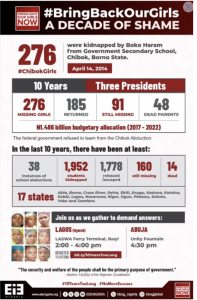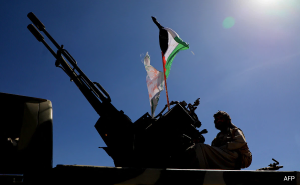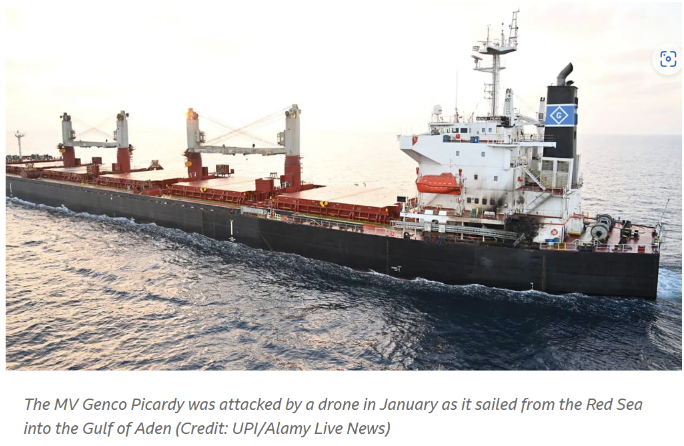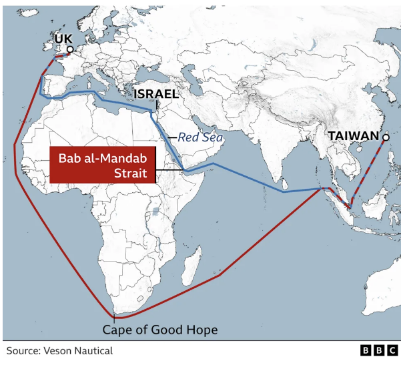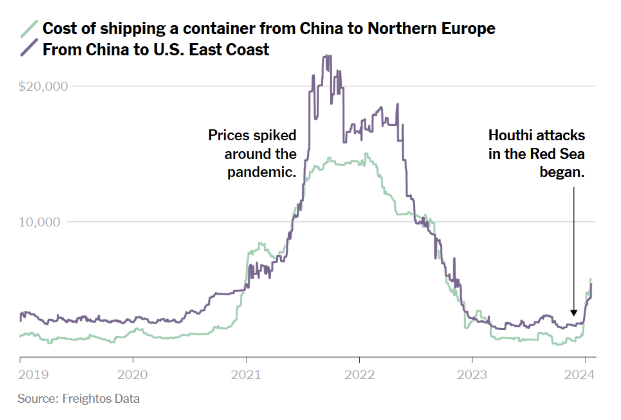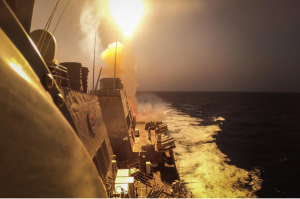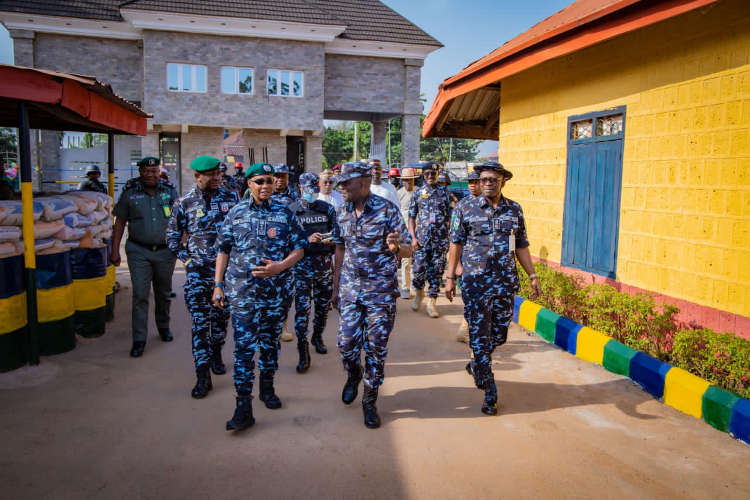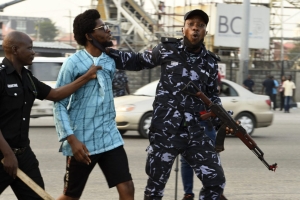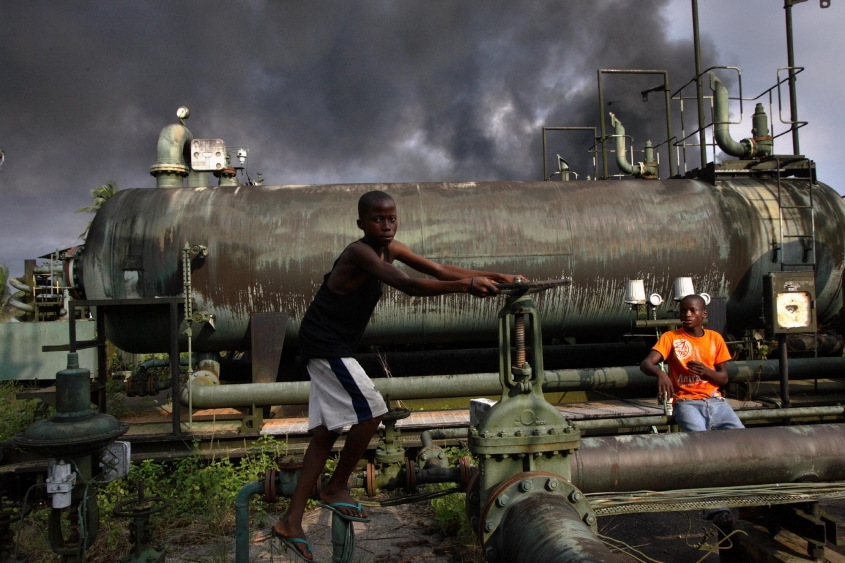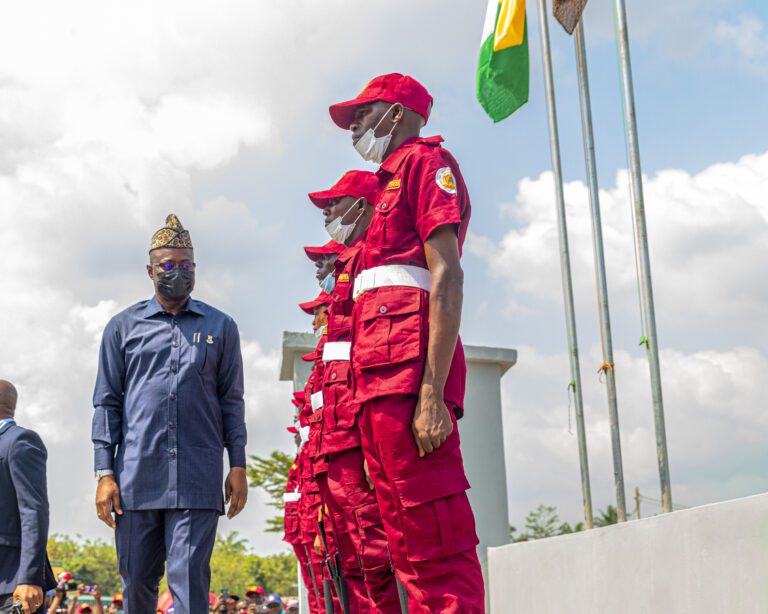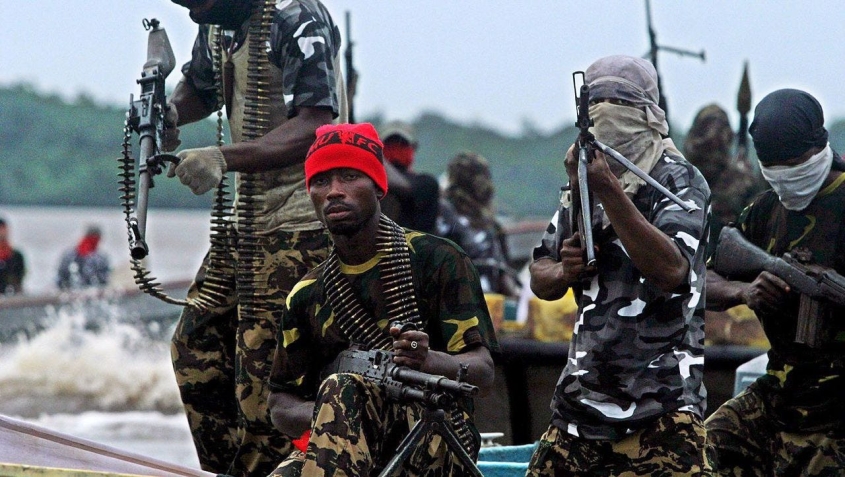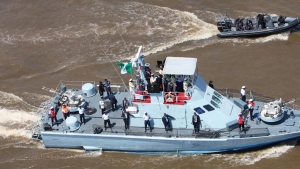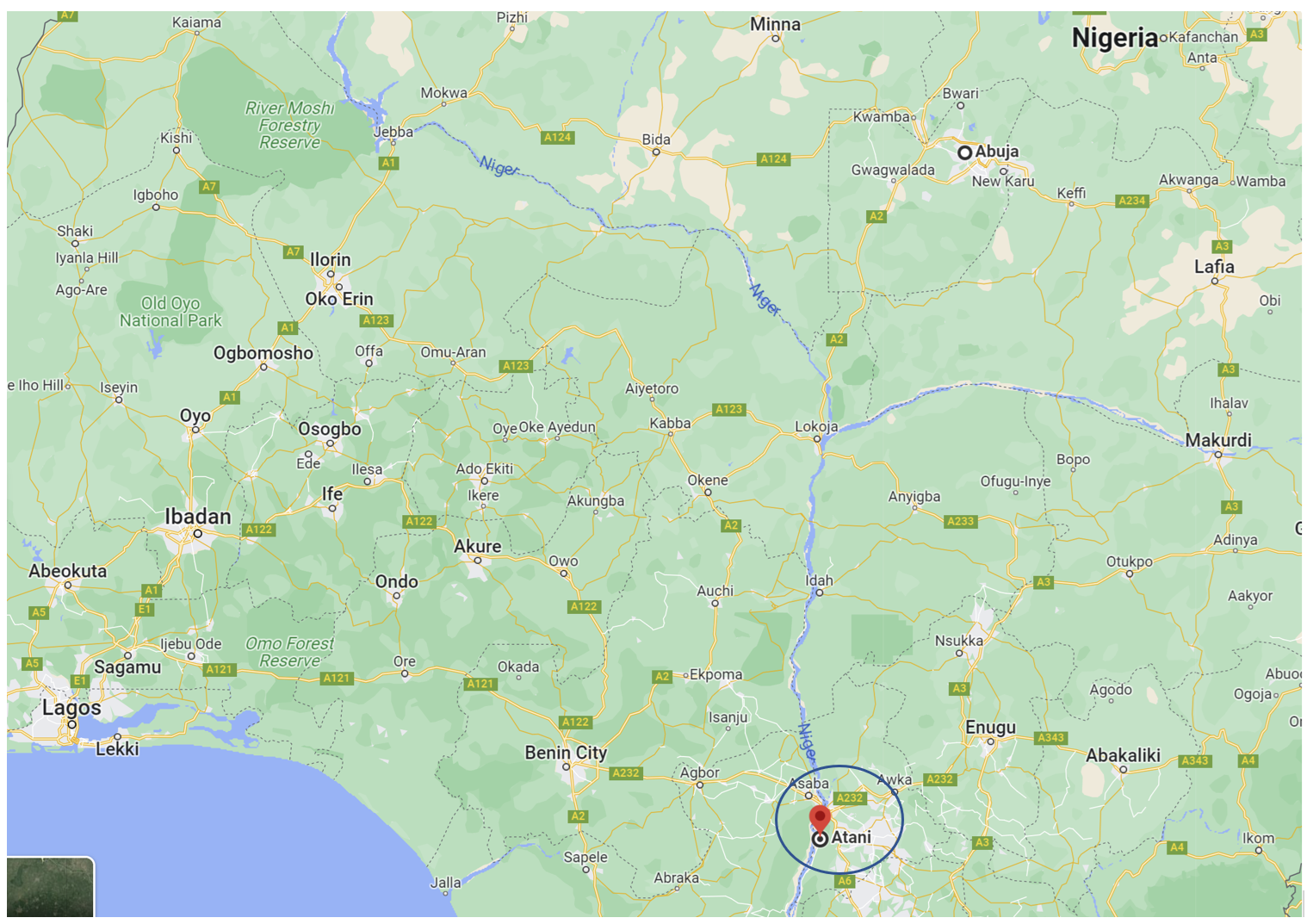Introduction and Background
This Deep Dive is a strategic review of potential developments in the security environment following the inauguration of the new President of Nigeria, Bola Tinubu, on 29th May 2023. In part one, we will focus on what we know about the President’s declared strategic goals based partly on his post inaugural address to the nation. It will also examine what is known about the extant drivers of instability and insecurity throughout the country and what we assess to be valid and effective reforms in the security sector that the President might pursue.
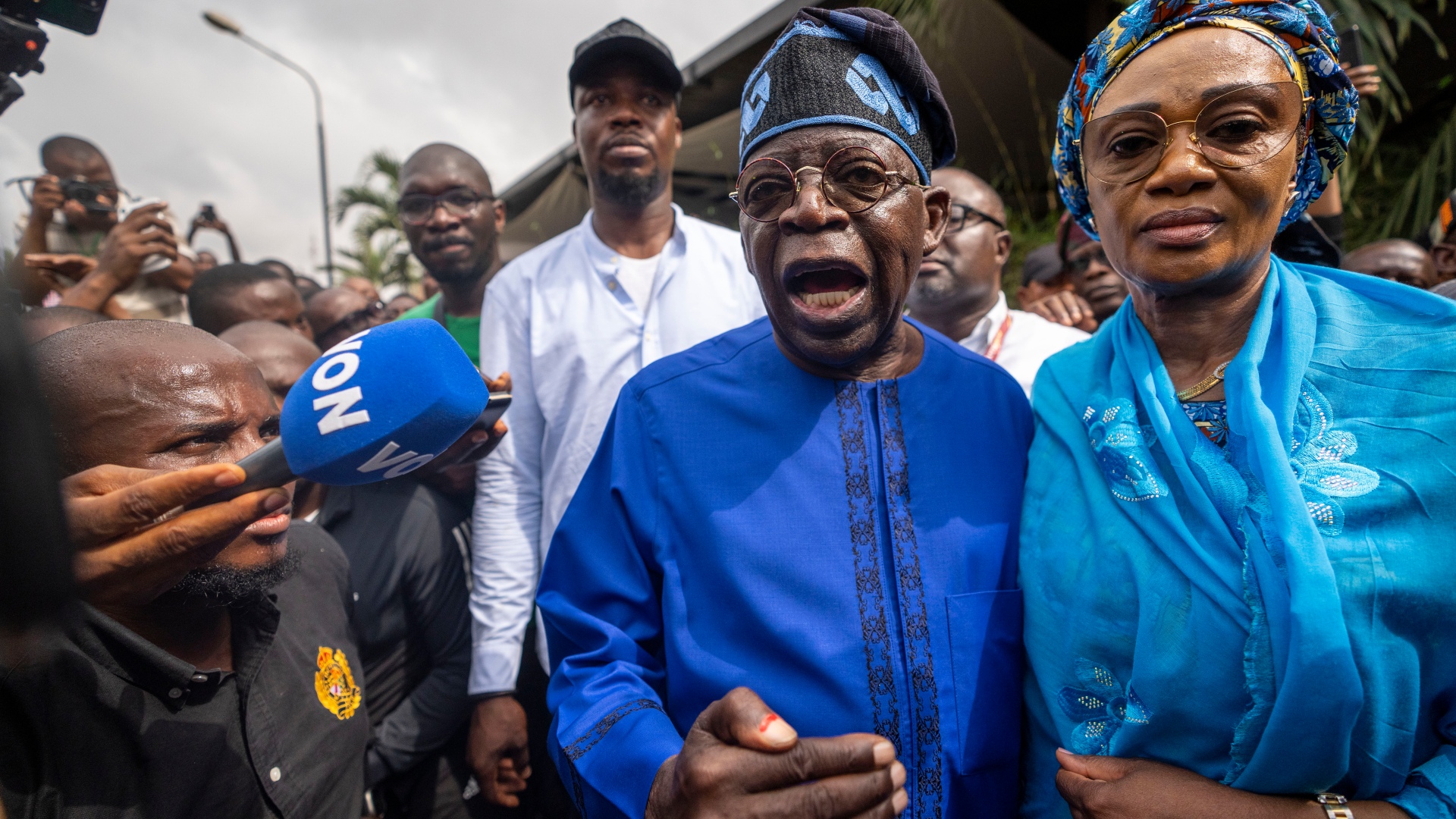
Elected in February 2023, President Tinubu was already fully versed in the strategic security challenges that he would be faced with in his first term in office. The multi-faceted security environment is well documented. Major drivers of instability exist in all the geopolitical regions of the country, generating economic fragility and stagnation, hindering social development and cohesion and, with relatively few exceptions, ensuring that the country remains an unattractive destination for foreign investors. Adversarial groups throughout the country can be characterised as diverse, dynamic and persistent.
It is perhaps sensible at this stage of the analysis to remind ourselves of what the new President has pledged. In his inaugural address to the nation, President Tinubu included the following statements:
The principles that will guide our administration are simple:
- Nigeria will be impartially governed according to the constitution and the rule of law.
- We shall defend the nation from terror and all forms of criminality that threaten the peace and stability of our country and our subregion.
- We shall remodel our economy to bring about growth and development through job creation, food security and an end of extreme poverty.
- In our administration, women and youth will feature prominently.
- Our government will continue to take proactive steps such as championing a credit culture to discourage corruption, while strengthening the effectiveness and efficiency of the various anti-corruption agencies.
SECURITY
Security shall be the top priority of our administration because neither prosperity nor justice can prevail amidst insecurity and violence.
To effectively tackle this menace, we shall reform both our security doctrine and its architecture.
We shall invest more in our security personnel, and this means more than an increase in number. We shall provide, better training, equipment, pay and firepower.
THE ECONOMY
On the economy, we target a higher GDP growth and to significantly reduce unemployment. We intend to accomplish this by taking the following steps:
- First, budgetary reform stimulating the economy without engendering inflation will be instituted.
- Second, industrial policy will utilize the full range of fiscal measures to promote domestic manufacturing and lessen import dependency.
- Third, electricity will become more accessible and affordable to businesses and homes alike. Power generation should nearly double, and transmission and distribution networks improved. We will encourage states to develop local sources as well.
I have a message for our investors, local and foreign: our government shall review all their complaints about multiple taxation and various anti-investment inhibitions. We shall ensure that investors and foreign businesses repatriate their hard-earned dividends and profits home.
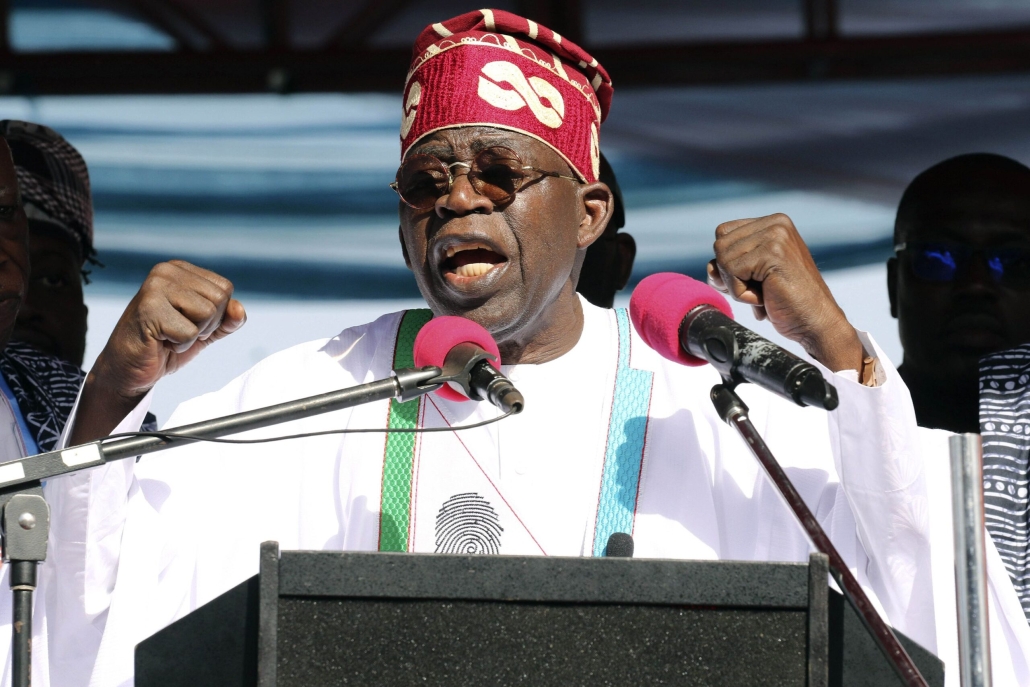
JOBS
My administration must create meaningful opportunities for our youth. We shall honour our campaign commitment of one million new jobs in the digital economy. Our government also shall work with the National Assembly to fashion an omnibus Jobs and Prosperity bill.
This bill will give our administration the policy space to embark on labour-intensive infrastructural improvements, encourage light industry and provide improved social services for the poor, elderly and vulnerable.
AGRICULTURE
Rural incomes shall be secured by commodity exchange boards guaranteeing minimal prices for certain crops and animal products. A nationwide programme for storage and other facilities to reduce spoilage and waste will be undertaken.
Agricultural hubs will be created throughout the nation to increase production and engage in value-added processing. The livestock sector will be introduced to best modern practices and steps taken to minimize the perennial conflict over land and water resources in this sector.
Through these actions, food shall be made more abundant yet less costly. Farmers shall earn more while the average Nigerian pays less.
INFRASTRUCTURE
We shall continue the efforts of the Buhari administration on infrastructure. Progress toward national networks of roads, rail and ports shall get priority attention.
FUEL SUBSIDY
We commend the decision of the outgoing administration in phasing out the petrol subsidy regime which has increasingly favoured the rich more than the poor. Subsidy can no longer justify its ever-increasing costs in the wake of drying resources.
We shall instead re-channel the funds into better investment in public infrastructure, education, health care and jobs that will materially improve the lives of millions.
FOREIGN POLICY
Given the world in which we reside, please permit a few comments regarding foreign policy.
The crisis in Sudan and the turn from democracy by several nations in our immediate neighbourhood are of pressing concern.
As such, my primary foreign policy objective must be the peace and stability of the West African subregion and the African continent. We shall work with ECOWAS, the AU (African Union) and willing partners in the international community to end extant conflicts and to resolve new ones.
As we contain threats to peace, we shall also retool our foreign policy to more actively lead the regional and continental quest for collective prosperity.
MONETARY POLICY
Monetary policy needs thorough housecleaning. The Central Bank must work towards a unified exchange rate. This will direct funds away from arbitrage into meaningful investment in the plant, equipment and jobs that power the real economy.
Interest rates need to be reduced to increase investment and consumer purchasing in ways that sustain the economy at a higher level.
Whatever merits it had in concept, the currency swap was too harshly applied by the CBN given the number of unbanked Nigerians. The policy shall be reviewed. In the meantime, my administration will treat both currencies as legal tender.“
All of the above will impact on security and stability – either positively, with improvements and reductions in levels of criminality, lower casualty and victim numbers, or negatively by impinging on the vested interests of powerful crime bosses and extremist groups.
Before we focus on the security reforms that we might see introduced by the new regime, it is useful to review the impacts – both positive and negative – of the President’s declared strategies.
Economic Drivers
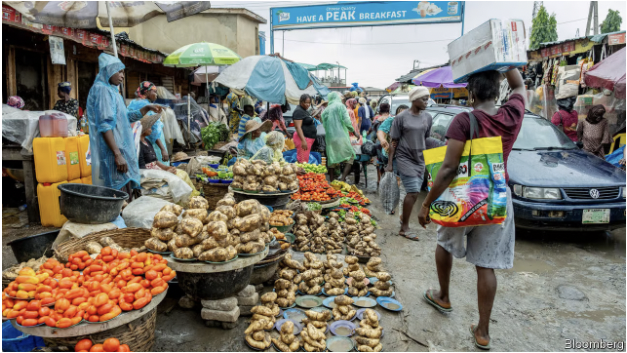
Because insecurity in Nigeria is driven primarily by internal actors and factors, improving GDP will generate security and stability benefits through generating greater revenues for the Federal Government to fund its key strategic aims while lifting many (but not all) Nigerians out of poverty.
Many of the potential investments mentioned in the address to the nation, if successfully implemented, will contribute to a more prosperous society with improved distribution of wealth. These impacts will reduce the poverty driven, low level criminality that plagues Nigeria’s urban centres.
The economic pledges made in the President’s address are commendable. Of particular note, is the pledge to reduce unemployment and to create 1 million new jobs in the digital economy. Coupled with his pledge to improve the supply of electricity to communities, his policy development team has clearly identified the key drivers of poverty and hardship endured by millions of Nigerians. The question is, will he be able to implement these reforms effectively? A successful implementation will undoubtedly contribute to a more prosperous, stable and secure society. However, if unsuccessful, the effects could drive even greater corruption and exacerbate existing social tensions.
At the strategic level, the President aims to deliver a root and branch reform of the nation’s monetary policy. Focussing on those factors that affect investment and business development, the task of making headway in this area falls squarely on the Central Bank of Nigeria (CBN). The sacking and subsequent investigation by the Department of State Security of the CBN Governor, Godwin Emefiele, on 9th June was driven, according to the President, by the chaotic performance of the CBN that saw exchange rate mechanisms and complex restrictions on currency transfers across international borders render international business and money transfers almost impossible.
The shambolic planning for the change out of old bank notes generated severe hardship for millions of Nigerians as discussed in our previous analysis of the situation back in February (read it here). The resultant unrest in some areas, and the allegations of mass corruption by bankers throughout the country, exposed the fragility of extant monetary policy, its facilitation of corruption and the strangulation of small and medium enterprises (SMEs).
The President’s pledge that his government would ensure that both old and new currency would remain valid for the immediate future is a smart move that will significantly reduce tension among those Nigerians who do not have a bank account. Long overdue reform of the country’s monetary policy should generate benefits for small business owners and improve the country’s appeal to foreign investors.
The reforms noted above will primarily impact urban centres, however, his address also picked up on the stressors endured by the rural population. His focus on reforms of the agricultural sector is also commendable, with a clear focus on improvement in the value chain for farmers and the difficulties they experience in getting their products to market.
Improving supply chain security for arable farmers is welcomed, however, the President also addressed the enduring problem of the livestock sector and the omnipresent challenge facing herders in their search for grazing and watering opportunities. If the President’s team can effectively address this challenge, it will have focussed on a major driver of conflict and instability in rural areas and outlying communities from the mid-belt south as far as the coast in some areas.
Improving the supply chain for agricultural products will generate positive returns in the battle to provide more affordable staple foodstuffs for the average Nigerian. Again, this reduction in one of the drivers of poverty will help to improve social stability and reduce the need for urban populations to indulge in ‘opportunistic income generation’.
The focus on the transport networks in the country should also generate commercial advantages that will enhance the strategic aim of reducing poverty. If this can be achieved in parallel with a doubling of the supply of power to communities, commerce will increase, investment will be a more attractive option for companies and the net effect will be to lift Nigerians out of poverty, into employment and away from low-level criminality driven by need rather than greed.
Conversely, the stated aim of completely phasing out the fuel subsidy is a double-edged sword. On the one hand it will free up much needed federal revenues to focus on infrastructure projects and other social developments, including improved schooling and healthcare, however, it will also force the price of fuel up and potentially counter the economic benefits of some of the other reforms the Tinubu regime intends.
Historically, attempts to remove the fuel subsidy have generated political strain as fuel importers and marketers face the prospect of having to work the economy for their profits, and intense strike and protest activity by the wider population who would face significant hikes in essential fuel cost. In the long term, the removal of the fuel subsidy is an essential step in the reform of the economy. However, the strategy will involve some short-term pain for the Presidency.
Foreign Policy
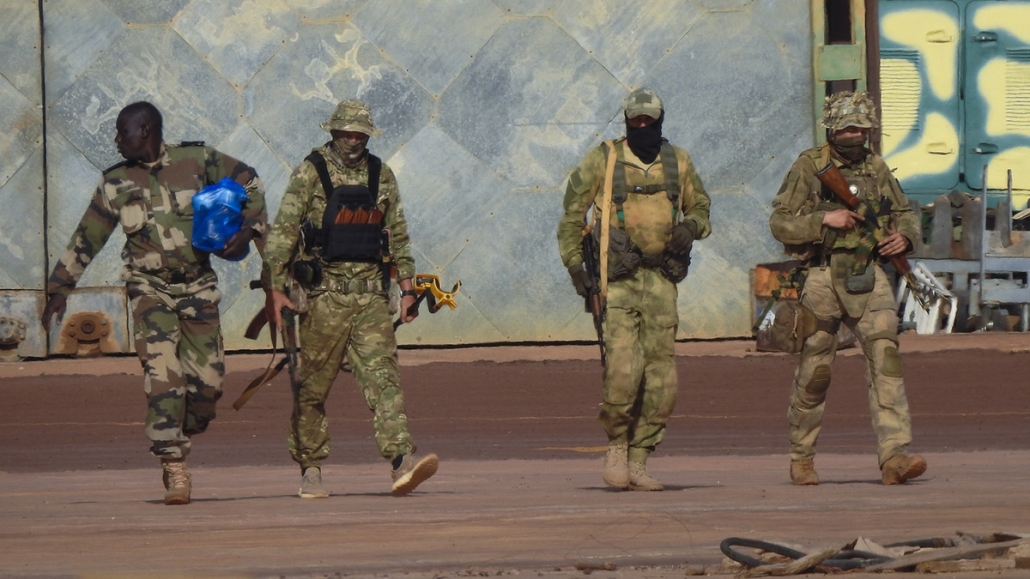
The world is in a transitional state as this report is drafted. The war in Ukraine has dislocated the expectations of analysts around the world. What was assessed to be a war that would likely last a matter of a few weeks, has seen the second most powerful military power in the world utterly humiliated. At the time of writing, the Russian Private Military Company (PMC), Wagner Group, appears to have ended its existence in its current form in a spectacular manner. Regionally, this is significant, as the Group, widely assessed to be an unofficial arm of the Russian Ministry of Foreign Affairs and an extension of the External Intelligence Service (Sluzhba Vneshnoj Razvedki (SVR), a successor organisation to the KGB, has significant operations in Mali and the Central African Republic.
It is beyond the scope of this Deep Dive to analyse in detail the impact of the Wagner group presence in several African countries, but it can be stated that everywhere the group has operated has seen a subsequent deterioration in stability and security.
So, what has this to do with Nigeria? In July 2021, it was reported in mainstream media that Wagner Group’s CEO, Yevgeniy Prigozhin, had met with the Nigerian Army’s Chief of Staff, Farouk Yahya. It was stated by a source close to the Nigerian Army that the meeting was in preparation for the deployment of Wagner elements into the north-east of the country to tackle the Islamist insurgency in the region. It is unknown whether President Tinubu intends to nurture this fledgeling relationship with the Russian mercenary outfit, however, events of the weekend 24-25 June 2023 have left a huge question mark over the future of Wagner Group. It is possible that it will fragment into a number of new companies, some of which will likely focus on lucrative African opportunities.
President Tinubu stated in his address that his primary foreign policy objective will focus on establishing and maintaining peace and stability of the West African subregion and the wider African continent. This is an important statement, as regional security is fragile. Our recent examination of trends in terrorism (read it here) highlighted the dynamic nature of the Islamist insurgency that is a transnational threat to stability in at least nine West African nations. We will look briefly at the threat posed to Nigeria by this insurgency below.
President Tinubu’s pledge to work with regional and international bodies to address the instability is commendable. If successful, and the insurgency is driven out of northern Nigeria, he will have achieved a significant goal. However, recent history has shown how resilient the Islamist movements are, and it is unlikely that the insurgency will be defeated in Nigeria within his first term in office.
The Security Mosaic of Nigeria
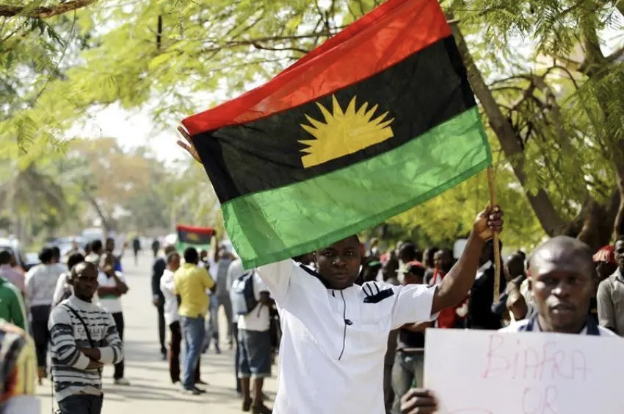
President Tinubu faces a very challenging problem that is, perhaps, more accurately described as a complex mosaic of shifting and diverse drivers of instability. The various regions of the country each have their own characteristic primary security challenge. The diversity of Nigeria’s security threats requires an innovative set of bespoke solutions. This requires a detailed and intimate understanding of the local crime patterns, drivers of instability and the dynamics of each threat. Only by addressing these factors can the response be integrated into a multifaceted national security strategy.
In the North-West Geopolitical Zone, banditry is widespread and, in some areas, out of control. Raids on communities with abduction especially of women, armed robbery and kidnapping on highways and even on railways characterise the region, although they are not exclusive to the north-west. Our Deep Dive on the attack on the Abuja-Kaduna railway link examined some aspects of the regional security threats in detail (read it here).
In the North-East the principal security challenge is that of Islamist insurgency and our previous Deep Dives have examined the evolution of this threat in detail.
In the North-Central Geopolitical Zone, the main driver of instability is the eternal conflict between pastoral herdsmen and arable farmers over grazing rights and access to water sources. Banditry also plays a part in the security picture for this region.
The South-West is characterised by high levels of urban criminality which impacts a number of the region’s state capitals but is perhaps the most intense in Lagos – the most populous city in the country. It comprises of need-driven opportunistic street crime, organised criminal activity including kidnap for ransom as well as ritual killing, armed robbery and house-breaking / estate invasions.
The South-East suffers from a low-level insurgency associated with the Biafran separatist movements. See our Deep Dive from April 2023 which examines the security landscape in the region in detail (read it here).
In the South-South region we can still find massive, industrialised theft of crude oil and condensate from pipelines. The estimated losses are so significant that President Tinubu has identified the problem as having a strategic impact on the nation’s economy. He has vowed to deal with the problem as a matter of high priority.
Thus, we can see that the major sources of instability are diverse, relentless and dynamic. As any one group is neutralised, another steps into the gap. The monetary gains to be had through criminality often exceed those that are achievable through enterprise and hard work.
At a lower level, even though Nigerians are instinctively and energetically entrepreneurial, SMEs are prey to ruthless and corrupt landlords, local politicians, community leaders and groups of gangsters. Corruption among local authorities – such as the leadership of major market sites – can render a business valueless in terms of profitability. In effect, millions of Nigerians work for the benefit of the unscrupulous and corrupt. This generates a poverty trap that creates levels of stress and desperation that frequently force ordinary people to commit petty crimes in order to survive.
It is this incredibly complex security environment that President Tinubu must address if he is to create a legacy as the man who improved the lot of the average Nigerian. In part two of this Deep Dive we will examine some of the measures and steps that could be taken in order to create more effective security forces and achieve success in elevating Nigerians out of the circumstances they find themselves in currently.

